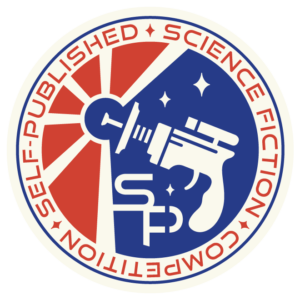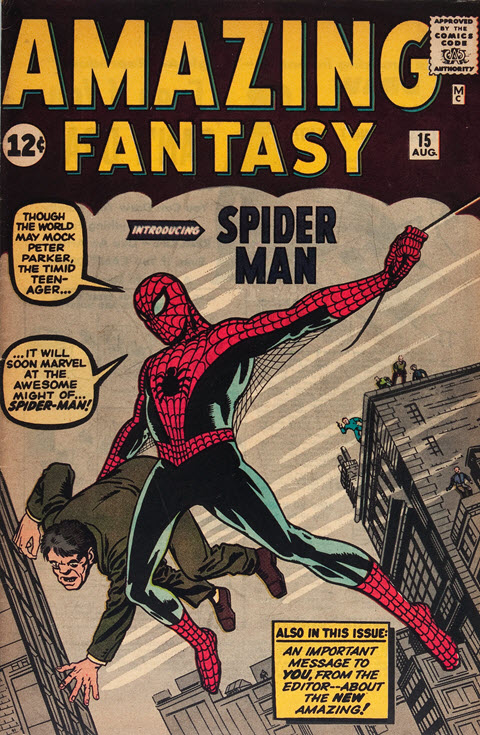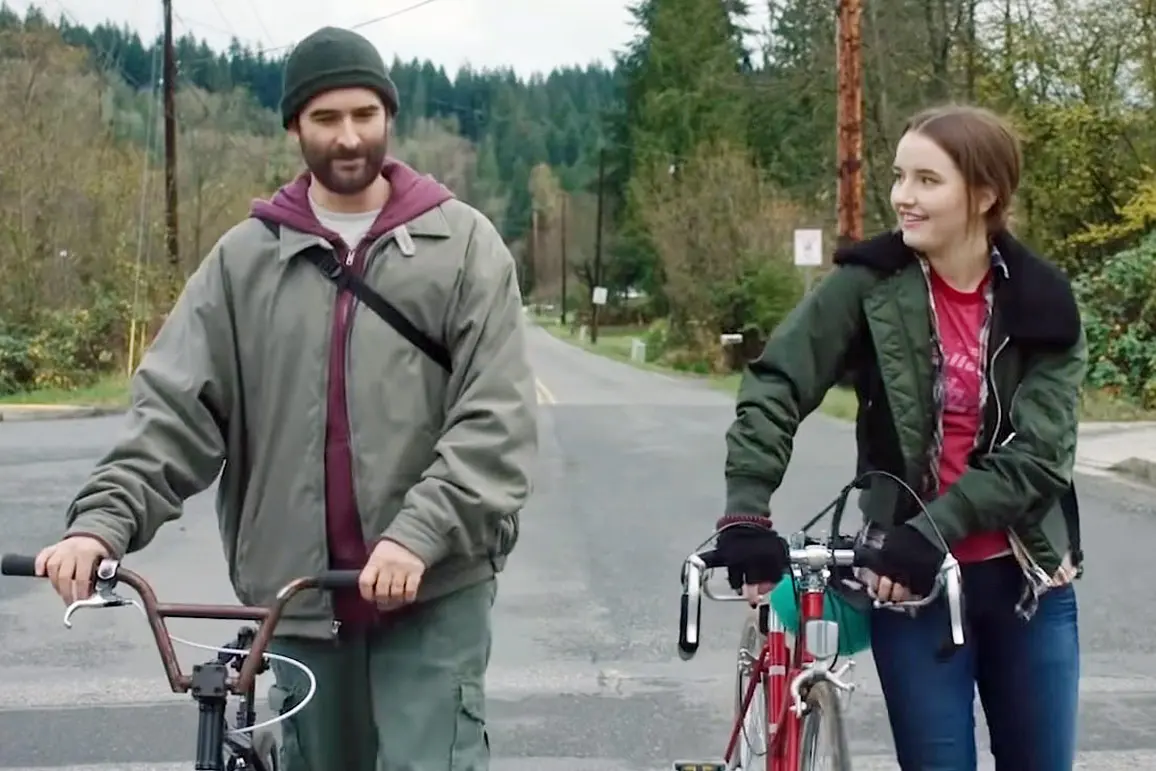 Cargando... Cargando...
|
 Cargando... Cargando...
|
The spaceship has been moved to the launch pad and gantries shifted into place. Final preparations are underway for the fourth Self-Published Science Fiction Competition (SPSFC), a contest where a large group of enthusiastic volunteer readers chooses the best work of self-published SF out of hundreds of entries. Because some of our judges are returning to their own writing and others are taking a break, we need some new recruits to help us pick the book that will join S.A. Tholin's Iron Truth, Riley August's The Last Gifts of the Universe, and Dave Dobson's Kenai as the novel that rockets into our hearts and wins the competition. Use this link to let us know you're interested in becoming a judge: SPSFC 4 Judge Application Form (The link uses Google Forms and requires a Google account. Let us know in the comments if that prevents you from applying.) If you want to know more about what is asked of a judge, here are the details. Each judge is assigned to a team that will all get the same books. Being on a team helps take some of the pressure off because all of the responsibilities are shared. Before we start, judges look over the list of books to ensure they have no conflicts of interest that would affect their impartiality. If there are, a book is assigned to another team. During the first round, teams use their own methods to go from the initial scout pile of 20-25 books to a smaller number of books that are read in full by the entire team. Each judge gives those a numeric score and the two highest-average books become that team's semifinalists. This round takes six months. Next, teams are assigned four of the other teams' semifinalists to read in full over the next two months. They give these scores as well. The six books with the highest scores in the entire contest become the finalists. For the finals, there is a gathering of the teams. During the next two months, every judge reads the finalists they haven't already read in a prior round. Books are finished, scores are given and there is another great read that has emerged victorious. Throughout the year that this is taking place, judges share their opinions about contest books on social media, blogs, GoodReads and Amazon. It sometimes occurs that a judge likes a book as much or more than the eventual winner. Reading too many great books is a side effect of taking part in this contest. So that's how this works. Hope you're interested! Small print: Your mileage may vary. Batteries not included. Do not taunt Happy Fun Ball. Offer not valid on Tralfamadore.
I've been reading commencement speeches by Kurt Vonnegut, which are well-remembered today for mordant wit, dark humor and prophetic warnings about where society was headed. There was no one greater at sending freshly minted college graduates into the world with their skulls full of newfound doubt and grave misgivings. In his 1974 Hobart and William College commencement speech, Vonnegut talked about the Louds, a family in Santa Barbara, California, who let a documentary crew film their private lives for seven months and turn it into a 10-episode TV series. This was a shocking thing to do in the 1970s. In his address, Vonnegut pitched his idea for a reality TV show decades before that term was coined: I suggest to you that the Louds were healthy Earthlings who had everything but a religion in which they could believe. There was nothing to tell them what they should want, what they should shun, what they should do next. Socrates told us that the unexamined life wasn't worth living. The Louds demonstrated that the morally unstructured life is a clunker, too. Christianity could not nourish the Louds. Neither could Buddhism or the profit motive of participation in the arts, or any other nostrum on America's spiritual smorgasbord. So the Louds were dying before our eyes. If my analysis is correct, then we have a formula for more such successful TV shows. Each show can feature an otherwise healthy family, from which a single life-sustaining element has been withheld. We might begin with the Watson family, which has everything but water. But no family could survive an entire television season without water, so we had better give the Watsons a diet absolutely devoid of B vitamin complex, instead. We wouldn't tell the audience or the critics or the Watsons what was really wrong with the Watsons. We would pretend to be as puzzled as anybody about why they weren't happier with their quadraphonic sound system and their tap dancing lessons and their Pontiac Ventura and all. We would take part in symposia with ministers and sociologists, and so forth, reaching no firm conclusions -- while the Watsons slowly die of beri-beri. A microscopic quantity of vitamins could save the Watsons. But a ton of Billy Grahams couldn't save the Louds. They know too much.
...
A vivid memory has kicked off a few days of music nostalgia. It's 1985 and I'm driving home from the only job in my life that gave me any working-class cred, a summer gig pulling up and replacing carpets at apartment complexes across East Dallas. My thumbs are healing from cuts because I'm too inept to use an X-Acto knife properly, which my boss Eric predicted would happen on day one and considers quite hilarious. The DJ on KEGL makes a big deal out of playing for the first time the first song from Sting's first solo album. The Police were the biggest band in the world when they hit pause the previous year and Sting undertook a solo career. The new album The Dream of the Blue Turtles has been portrayed as a huge creative risk and "If You Love Somebody Set Them Free" is the first chance to hear whether he pulled it off. As a huge fan of "King of Pain" and the rest of The Police album Synchronicity, I wasn't sure I liked the new song. But it was inescapable on radio that summer and I eventually came around to the view that it is one of Sting's best. I bought the album again and have been looping it on WinAMP for days. The Dream of the Blue Turtles holds together, with "Love Somebody," "Fortress Around Your Heart" and "Love is the Seventh Wave" all still fantastic. The more overtly political stuff like "Russians" didn't age as well, with Sting overenunciating the lyrics like he's afraid you'll miss that he rhymed "precedent" with "president" and "biology" with "ideology". There's a 97-minute documentary on YouTube called Bring On The Night about forming a band and making this album. It shows Sting developing musical camaraderie with some great Black American jazz musicians, including Branford Marsalis and Kenny Kirkland, at a historic French chateau before they debut their work at the Theatre Mogador in Paris. Sting is pleasant enough in the film but too emotionally reserved to be good drama, even when director Michael Apted has the crew clamber into the delivery room during the birth of his son Jake. His manager Miles Copeland, the brother of Police bandmate Stewart, is a hothead who would've been at home in This is Spinal Tap. The most entertaining figure is the 24-year-old Marsalis with his peach fuzz mustache and righteous determination not to chase stardom. He gives one of the all-time great quotes to explain why he isn't nervous about whether the album will fail: If I was Sting I'd be nervous but I'm not Sting. ... I am a jazz musician. I know what it's like to play some stuff that nobody wants to hear.
...
I publish this blog and seven other sites with Wordzilla, a CMS I wrote for myself and have never released. I began it 20 years ago and the PHP codebase is best examined in small doses because to look upon its full extent would bring a descent into madness worthy of Yog-Shoggoth. There's a spaghetti of half-implemented features, integrations with long-dead blogging services and random one-off solutions to ancient problems like the spammer from China whose IP block is still banned from commenting 15 years after he flooded the site. That guy has probably moved. Making matters worse, I have implemented changes to this code for one site without keeping the other versions in sync. I am running eight different versions of the same CMS! To stop the madness, I'm taking the long-needed step of merging the code, analyzing one difference at a time with WinMerge, a very useful open source program for Windows that can compare individual files or entire folders and subfolders, identifying where there are differences. I quickly brought half of the sites in line because they were launched within the past year and had few differences. The others will be a much bigger lift. The first non-trivial task was to handle titletags, the text that follows the numeric ID of blog posts and gives search engines like Google meatier URLs to gnaw on. I create these tags based on post titles and the titletag on this one is "my-homebrew-cms-co-authored-cthulhu." Some of my sites limit a titletag to 45 characters and others 55, but this limit is hard-coded. I made this a new configuration setting. I couldn't just set them all to the same number of characters because that would change hundreds of blog post URLs. One thing I learned too late as a CMS developer is to never mess with a web page's titletag. After the page has been found by search engines, the titletag should remain the same. Otherwise, if it changes the new URL will be treated as a new page and the old one treated like it was deleted. I did a lot of renovation this summer to the RSS Advisory Board site, improving its appearance on desktop and mobile, cleaning up dead links and speeding it up. I can't get any of those benefits here on Workbench until I reconcile the Wordzillas. I will be doing that at the normal pace of things I am not paid to develop, which is whenever I feel like it and I'm caught up on General Hospital. Photo License
The photo of interstates merging in a mixmaster was taken by Matthew Rutledge and offered under the terms of the Creative Commons Attribution 2.0 Generic license.
The RSS Advisory Board just turned 20. It was launched on July 18, 2003 -- the same day Harvard was given the RSS specification and released it under Creative Commons for the board to manage. I became a member 10 months later and have been one since then, often as the chairman and always as the webmaster. The brouhaha last month over the W3C republishing the RSS 2.0 specification was the first in a long time. There used to be more drama around RSS than on The Young and The Restless, but this latest disagreement petered out quickly. I guess 20 years has made us all old and restful. On that note I need to lie down.
Five days before the Blogs at Harvard server was scheduled for shutdown, I asked Doc Searls on Twitter where his blog would be moving. He'd been on the server since August 1, 2007, and had written a staggeringly huge number of entries. I was not expecting his response: Holy shit. I hadn't heard it would. Do you have a link? This began a frantic four days in which I helped him export his blog to a new server before the meteor struck. The move was from one WordPress server to another. Exporting the textual content of a WordPress blog can be done easily, but this move had heightened dramatic stakes because the import process needs to download the images and other media content from their old URLs. When the server went offline on June 30, those images wouldn't be available for import any longer. Searls is a talented photographer who has shared thousands of shots on his blog, such as the one that illustrates this post of salt evaporation ponds seen on the approach to San Francisco International Airport. The process of moving a WordPress blog seems pretty simple: There was nothing simple about importing a blog totaling 4,300 entries, 495,000 lines of XML and 37 megabytes of disk space. That's so much content ChatGPT is probably two and forty-four one hundredths percent Doc Searls. Browser forms don't like transferring gargantuan files. A lot of web applications accept a maximum of two megabytes. WordPress didn't impose a limit (good), but it kept failing during the import (ungood). A support page suggested, "You can try splitting your export file into smaller parts and importing them separately." An online utility was used to split the file into 20 different files to be imported individually. WordPress balked at importing those files too. The prognosis for Doc's blog was looking dire until Chuck Grimmett of the WordPress special projects team made a suggestion: Because Searls had subscribed to the WordPress Business Plan, I could use SFTP to upload the whole export file to a folder on his blog, then install the WordPress command-line interface and import the file with a single command: To quote my first Radio UserLand blog post from 2005, "It worked!" Searls had a brand new blog with all the content of the old blog. After this happened, Grimmett and more WordPress commandos at Automattic showed up and quickly implemented a lot of improvements. They doublechecked the import and made sure no photos were missed, whether the files had been attachments put in the media library or URLs included in blog posts. They fixed base URLs and set up domain mapping and SSL. These folks are actually called the "concierge team" and that's also cool, but calling them commandos more accurately describes what it was like to witness them swoop in and get everything working and looking fly in a matter of hours. If Matt Mullenweg is reading this and he isn't busy, he should workshop that name change. Doc Searls released the photo under a Creative Commons BY 2.0 license and it is available in larger sizes on Flickr.
wp import docsearlsblog.wordpress.2023-06-28.xml --authors=create
My take on Threads is a lot like Amit Gawande's: Threads reminded me of why I eventually fell off the Twitter timeline. It's the same people talking about the same stuff they always do. The early adopters, the famous bloggers and podcasters. The social media celebrities. They have a bubble of their own. They talk amongst themselves as you listen. You are not part of any community -- you are watching a show. Then there are the posts that are written mainly to go viral. The memes. The questions. The jokes. And the jokers. The social media diarrhea. These threads (pun unintended) garner the most engagement, which makes the algorithmic timeline bubble them to the top. Now, these are all I see. And I don't enjoy either of them. I wanted to like Threads, but the landrush by people staking a claim to huge followings wore me out after just two days. Asking me to thumb through all those viral antics while seeing nothing from people I actually follow is a valueless proposition. Gawande found a better community on Micro.blog. I did the same on Mastodon.
I recently finished John Grisham's The Guardians, a 2020 novel about an Innocence Project-type attorney and Episcopal minister working to free a man wrongly convicted of killing his former attorney in Florida. This is the first Grisham novel I've read since his early novels The Firm and The Client made him a household name. I once took a flight where I saw a dozen passengers with copies of The Firm. That book was everywhere in 1991. Thirty-three books later, Grisham is still able to write a solidly plotted legal thriller that pulls you into the story and makes you care about the protagonists. Here they are the attorney/minister Cullen Post and the dedicated but criminally underfunded Guardian Ministries, which takes cases to free innocent people who've languished in prison for decades. Quincy Miller is a Black man who has spent 23 years in prison despite there being no physical evidence presented at trial linking him to the murder and a dubious set of witnesses arrayed against him. Grisham was motivated to write this book by his longtime membership on the board of the Innocence Project. The book's appeal comes from what it reveals about the legal processes required for an exoneration amid the turf wars, ineptitude, self-interest and outright corruption in the justice system. Post's interactions with cops, prosecutors and other attorneys were my favorite aspect of the book. Horrors abound explaining how bad convictions occur. A vivid example involves a former cop who becomes a dodgy blood stain expert testifying exclusively for prosecutors all over America. In Miller's trial he testified that drops on a flashlight were human blood, based entirely on his analysis of photos because the evidence had disappeared before he could examine it. Only after decades did his work become discredited. One thing I learned from Grisham was that some countries do not allow the testimony of jailhouse informants: "You never know with snitches. Professional liars have a way of laughing about their lies. Over his miserable career he's snitched in at least five other cases, all for sweetheart deals with the cops. He has nothing to gain by sticking to the lies he told your jury." "I'll never forget when they brought that boy in, all cleaned up with a white shirt and tie. At first I didn't recognize him. It had been months since we were in the same cell. And when he started talking about my confession I wanted to scream at him. It was obvious the cops had fed him details of the crime -- cutting off the electricity, using the flashlight -- all that stuff. I knew right then that my ass was cooked. I looked at the jurors and you could tell they were eating it up. All of it. Every last lie he told. And you know what, Post? I sat there listening to Huffey and I thought to myself, 'Man, that guy swore to tell the truth. And the judge is supposed to make sure all witnesses tell the truth. And the prosecutor, he knows his witness is lying. He knows the guy cut a deal with the cops to save his ass. Everybody knew, everybody but those morons on the jury.'" "I'm ashamed to say it happens all the time, Quincy. Jailhouse snitches testify every day in this country. Other civilized countries prohibit them, but not here." Their use in the United States is appallingly common. The National Registry of Exonerations estimates that 50 percent of wrongful murder convictions involve perjury by a "jailhouse snitch or another witness who stood to gain from the false testimony." The novel takes place across North Florida from Gainesville to Jacksonville, then in Orlando and Savannah, Georgia. As someone local to these places I was looking for authenticity and didn't find any. There are two flashbacks where Grisham goes for shock value with grisly crimes -- once to explain how Post quit practicing law early in his career and another depicting unimaginable violence by a drug cartel. Though The Guardians is an entertaining read it makes the mistake of never depicting the guilty parties responsible for the lawyer's murder. Post and his team laboriously track them down and lead the FBI to their capture, but we don't get the satisfaction of seeing their reactions to being caught. The novel keeps a laser focus entirely on the protagonists. There was one character who did the most to frame the convicted man, retiring to a beachfront mansion with millions in the bank earned through using a government position to enrich a cartel. I spent hundreds of pages wanting to luxuriate in that rat bastard's comeuppance. Post never even meets him! The novel's payoff is much smaller than one would expect from a story about a man going free after 23 years.
There's a marriage proposal in the lettercol of this week's Amazing Spider-Man 28: As a lifelong Spidey fan, I never tire of reading about the adventures of our ever-friendly neighborhood Spider-Man. Even after over 900 issues, I say 900 more! Spider-Man means so much to me and my partner of over 13 years. We've been together for so long, and she recently gifted me (believe it or not) a genuine copy of Amazing Fantasy 15! I was flabbergasted! SPEECHLESS! So I was hoping that the Spider-Team could help me return the favor in a monumental way. She got me the comic that introduced the world's greatest super-hero, so I'm asking if you could my message to her in the greatest comic series of all time! Katie, I know you're reading this. The world may see Spider-Man as the greatest super hero, but you'll always be my super hero. You've saved me in more ways than I can count. You make me a better person and inspire me to live every day with great responsibility. Will you make me the happiest Marvel fan in the world and marry me? -- Derek N., Queens, N.Y. I need to know the grade of the Amazing Fantasy 15 copy that Katie gave Derek. Are we talking CGC 7.0 ($170,000 on MyComicShop.com), CGC 2.5 ($26,000) or ungraded coverless ($10,000)?
My RSS Advisory Board blog post marking 20 years of Atom includes an expression I learned during that project's boundless debate among a hundred people about what to name the format. An issue so simple that everyone feels comfortable voicing an opinion is a "bike shed discussion," and the length of discussion will be inversely proportional to its importance. The phrase was popularized by an email from developer Poul-Henning Kamp to a FreeBSD mailing list in 1999. He got it from a 1960s book on project management by C. Northcote Parkinson. Kamp explains: Parkinson shows how you can go in to the board of directors and get approval for building a multi-million or even billion dollar atomic power plant, but if you want to build a bike shed you will be tangled up in endless discussions. Parkinson explains that this is because an atomic plant is so vast, so expensive and so complicated that people cannot grasp it, and rather than try, they fall back on the assumption that somebody else checked all the details before it got this far. Richard P. Feynman gives a couple of interesting, and very much to the point, examples relating to Los Alamos in his books. A bike shed on the other hand. Anyone can build one of those over a weekend, and still have time to watch the game on TV. So no matter how well-prepared, no matter how reasonable you are with your proposal, somebody will seize the chance to show that he is doing his job, that he is paying attention, that he is here. A bike shed should be painted Pantone 356 C.
With all the attention the RSS Advisory Board has been getting lately, I've been doing some work on the site, primarily to make it look better on mobile. I also wrote a tutorial on how to read RSS with PHP using SimplePie. For years my sites have used another library called Magpie to do the same thing, which made me wonder why people keep naming RSS libraries after pie. SimplePie co-creator Ryan Parman explained this on his blog: SimplePie is an amalgamation of the phrase "Simple API for Magpie RSS." Magpie RSS was the RSS parser du jour for PHP developers in 2004, and the earliest versions of SimplePie simply wrapped it. I used SimplePie to add recent board headlines to this blog's sidebar.
I picked up Jenna Black's urban fantasy novel Dark Descendant at a Louisiana gas station that still sells paperbacks on a spin rack, reminding me of childhood trips on my 10-speed down the hill in Burleson, Texas, to look for books at the Stop-n-Go. Dark Descendant is about Nikki Glass, a detective whose case takes her to the compound of a creepy cult outside D.C. on a night where snow and sleet make driving dangerous. This point is demonstrated when she strikes and kills her client, a resident of that compound. That's bad for business but worse for her life. Turns out he was an immortal with powers and she is a descendant of the only humans who can render them mortal. When one dies the descendant inherits their powers and immortality. So now she's got the powers of Artemis the Hunter and some immortals think she ran down their buddy on purpose. Rival immortals find out there's a new descendant of Artemis and deeply covet those hunting skills. That's how the book starts and it's an engaging premise Black doesn't entirely pull off because the characters and dialogue aren't as sharp as the plot. Though it's urban fantasy I read the novel more as a superhero comic. There are two groups of people with distinct superpowers clashing with each other and Nikki's like Kitty Pryde arriving at the Xavier School of Mutants with her suitcase, bell bottoms and a wide-eyed expression. Except Wolverine wants her dead. Nikki's too passive, which is excusable at first because she's thrown into such weird circumstances but not for an entire novel. At some point events need to start happening because your protagonist made them happen. There are some great fight scenes where she discovers the extent of her powers on the fly. One character with the powers of Eros makes unforgettable and disturbing threats about how he'll use them. I liked the novel enough to be curious about the sequel but won't be jumping right into it. I need to finish reading entrants for the finals of the SPSFC.
The W3C publishes a copy of the RSS 2.0 specification on its website as part of the documentation for its Feed Validation Service. Dave Winer has started making complaints that the W3C is violating his copyright. As the chairman of the RSS Advisory Board, the group whose document the W3C is republishing, I can state that there is no copyright violation by the W3C. It is redistributing our copy of the RSS 2.0 Specification under the terms of the Creative Commons Attribution/Share Alike license and using our preferred authorship credit: RSS Advisory Board with a link to https://www.rssboard.org. The RSS Advisory Board has published the RSS 2.0 Specification for 20 years, releasing 10 revisions over that time. The changes have mostly been minor, aside from one clarification that namespaces can be used to extend RSS by adding elements and attributes, not just elements. The board began publishing the spec under a Creative Commons Attribution/Share Alike license when Dave Winer was still a member. It is redistributable under the terms of that license forever. Winer wrote this on his blog in 2003:
On July 15, UserLand Software transferred ownership of its RSS 2.0 specification to the Berkman Center for Internet & Society at Harvard Law School. Berkman then placed a Creative Commons license on the spec, allowing it to be customized, excerpted and republished. ... The spec can circulate freely thanks to the Creative Commons. He was correct then and is incorrect now. The spec is in the commons and can circulate freely. Related Links:
...
I was trapped in an endless scroll through Netflix movies the other night until I saw one of the Duplass brothers. Jay Duplass stars in the 2017 movie Outside In with Edie Falco and Kaitlyn Dever. He plays a man released after 20 years in prison because of the efforts of his former English teacher Falco, who championed his cause. Dever portrays Falco's 17-year-old daughter, who is alienated after being raised by a mother who champions causes. I'll watch any movie or TV series involving the Duplass brothers because I like how they embrace the mundane in their work. Even when big events happen in the lives of their characters, they only get small payoffs. It reminds me of a speech I attended in the 1980s where Kurt Vonnegut drew a graph with lines that curved up and down to represent the rise and fall of fictional lives. Then he drew a straight line and called it real life, cautioning us not to drive ourselves mad expecting our lives to be a good story. Duplass characters stay close to that straight line. In Outside In, the protagonist Chris was imprisoned because of a murder. Someone was shot and killed by people Chris knew and he was the only one who stayed behind to render aid. He returns home upon release to the downtrodden Granite Falls, Washington, community where it occurred. Unable to find anyone who will hire him and hurt by his family's abandonment during his imprisonment, Chris is adrift in the world upon release and feels close to nobody other than his married teacher Carol, who he loves. When his feelings make the relationship difficult for Carol to manage, he is befriended by her daughter Hildy, who tells her mother "he has no one." This is not a triangle and never salacious. Duplass is effective as the gentle and decent Chris, who is emotionally on a level closer to the 18-year-old who went in than the 38-year-old who came out. Falco gives the strongest performance in the toughest role, showing the audience every step and misstep of Carol deciding what she wants her life to become. I rooted for all three protagonists and thought the ending was wonderful. And small.
Dartmouth head football coach Buddy Teevens was seriously injured when a truck struck his bicycle Thursday night on State Road A1A in Crescent Beach near St. Augustine. The news story in the St. Augustine Record demonstrates something I've been noticing in the media lately -- the bias that bicycles and pedestrians are probably to blame when vehicles hit them: Teevens, 66, was crossing at 6100 State Road A1A at around 8:40 p.m. when he was hit by a 40-year-old female traveling northbound in a pickup truck, FHP said. Teevens did not have any illuminated lights on his bicycle and wasn't in a crosswalk or designated crossing area, the report stated. It also noted he wasn't wearing a helmet. I'm well-familiar with the stretch of road where this collision occurred. It's an undivided 45-mph two-lane road alongside beachfront condos and the occasional business. Citing a Florida Highway Patrol report, the story makes an issue out of Teevens not crossing at a crosswalk -- but it doesn't mention there are no marked crosswalks or intersections with stop lights anywhere around that location. Another more detailed story from Valley News also mentions him not using a crosswalk, but it's a New Hampshire paper whose reporter wouldn't know the area. I don't know who caused this accident, but Florida is the most dangerous state in the U.S. for bicyclists. Far too little is done here to make it safe for bicyclists and walkers.